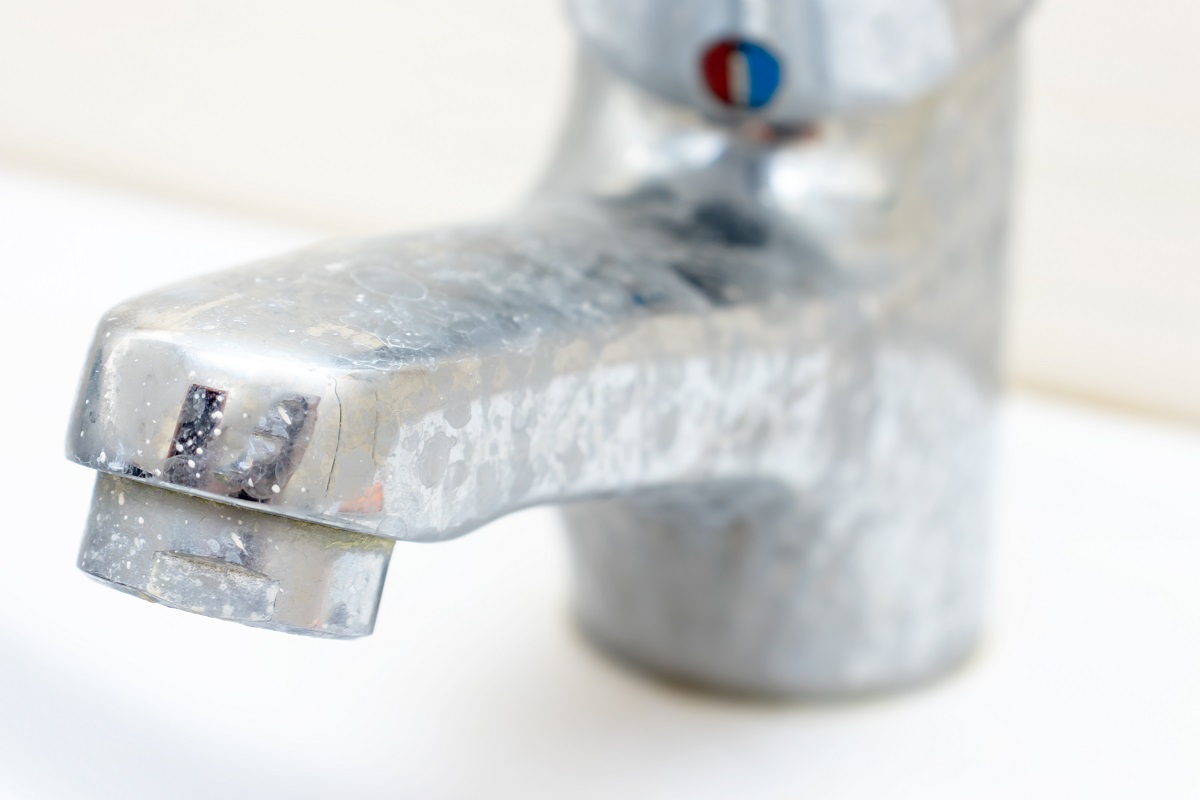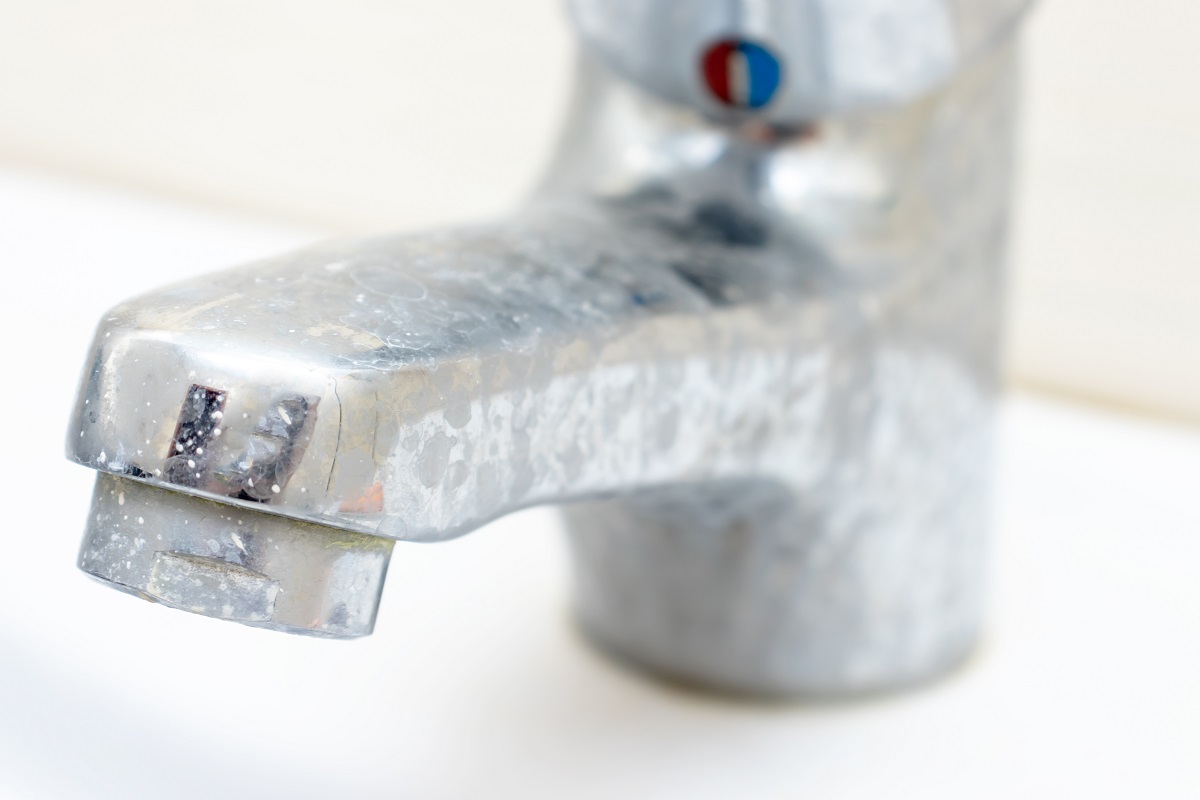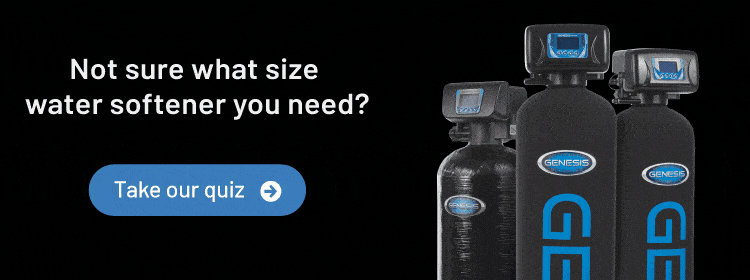Protecting Your Home Against Hard Water
Posted by Discount Water Softeners on Feb 14th 2022
Hard Water Stains
What causes the chalky white substance and rust-colored rings that appear in your sinks, showers, and toilets? This is the residue left behind by hard water. Hard water is predominantly found in groundwater, which is used by both municipalities and wells. When rain or melted snow travels from the ground’s surface through rock and soil rich in calcium and magnesium, the water absorbs these minerals, creating hard water.

The discoloration or scale you find on your home’s appliances is an accumulation of the minerals that are left behind when hard water evaporates from a surface. This discoloration can often come in the form of iron as well, causing rust-colored stains. Exposure to water and oxygen advances the deterioration of iron, causing rust. When the iron in your water oxidizes and grabs onto a surface, what it leaves behind is unsightly and difficult to remove.
Preventing hard water scaling takes dedication to keeping surfaces dry. Wiping down your sinks, showers, and countertops after usage, can dramatically decrease mineral buildup, but eliminating hard water before it enters your home is the most beneficial to prevent clogged plumbing and appliances. Water softeners effectively remove minerals from your water through ion exchange. In addition to protecting your home appliances, switching to soft water will improve your hair, skin and clothes.
A water softener is simply a filtration device that removes the hard minerals, calcium and magnesium, and low levels of iron from your water supply. Water softeners are commonly used for iron removal but in homes with elevated levels, iron filtration can be used in combination with a softener system. Hard water typically presents itself in the form of spotty, filmy dishes, soap that doesn’t lather, dry, flaky skin, and a buildup of white crust around faucets, drains, and showerheads. Hard water with iron takes on an even uglier appearance, leaving rust-colored rings in tubs and toilets.
Testing Your Home’s Water
If you use city water, you should receive an annual consumer confidence report, or drinking water quality report, in the mail or an online notification from your supplier. This will tell you where your water originates and what it contains. You can also purchase a water hardness test kit from any local home improvement store for a minimal cost.
For a few extra dollars, a more comprehensive kit can test your water for alkalinity, chlorine, iron, nitrates, and pH levels, as well as water hardness. Another option is to send a sample of your water to a third-party lab for a more thorough water analysis to test for specific contaminants such as heavy metals and bacteria. This type of testing is recommended on waters supplied by private wells.
With over 85% of all American households experiencing some degree of hard water, testing your water will let you see where your hardness stacks up. The average hardness level in the U.S. is about 13 grains per gallon, which is considered “very hard.” Anything over 14 grains per gallon is deemed “extremely hard.” Even if your water doesn’t contain a high hardness level, your household will start seeing the effects of hard water around 7 grains per gallon. Identifying what is in your water and how hard it is will help you choose the appropriate solution for any water problem.
Is Hard Water Bad For You?
Although the excess minerals in hard water may make the taste unpleasant and cause dry skin and hair, they generally aren’t harmful to your health. Calcium and magnesium minerals in water can, in fact, contribute a small amount towards what our bodies require. However, just because it doesn’t cause illness, it doesn’t mean there aren’t negative effects on the rest of your body.
Hard water minerals tend to coat, leaving behind a film and depriving skin and hair of moisture. Over time, your hair becomes limp and dull, and you’ll be more susceptible to hair loss. Those who suffer from skin conditions will likely experience the effects of excessive dryness and worsening of eczema or acne caused by clogged pores.
Most likely, you won’t be able to tell by looking at your water whether it’s hard or soft or if it’s full of contaminants. Without testing your home’s water, sometimes the feel of it and what it leaves behind is your only tip-off. Soap reacts to calcium minerals by forming soap scum. The film on your hands and skin after washing them creates the need for a lengthier rinse off. Deposits of calcium carbonate will appear as spots on glasses and dishware straight out the dishwasher.
Unsoftened water leaves stains on freshly laundered clothing and towels, giving them a dingy appearance. Hard water minerals can also form deposits in pipes and showerheads, reducing water pressure and presenting a challenge to rinse free of soap and shampoo.
So, while hard water likely won’t make you sick, the issues it brings into your home can be costly and energy intensive. A Genesis water softener is the best solution for removing harsh minerals and keeping your home running smoothly and cleanly. Soft water means enjoying healthier skin and hair, shinier fixtures, and long-lasting appliances.



